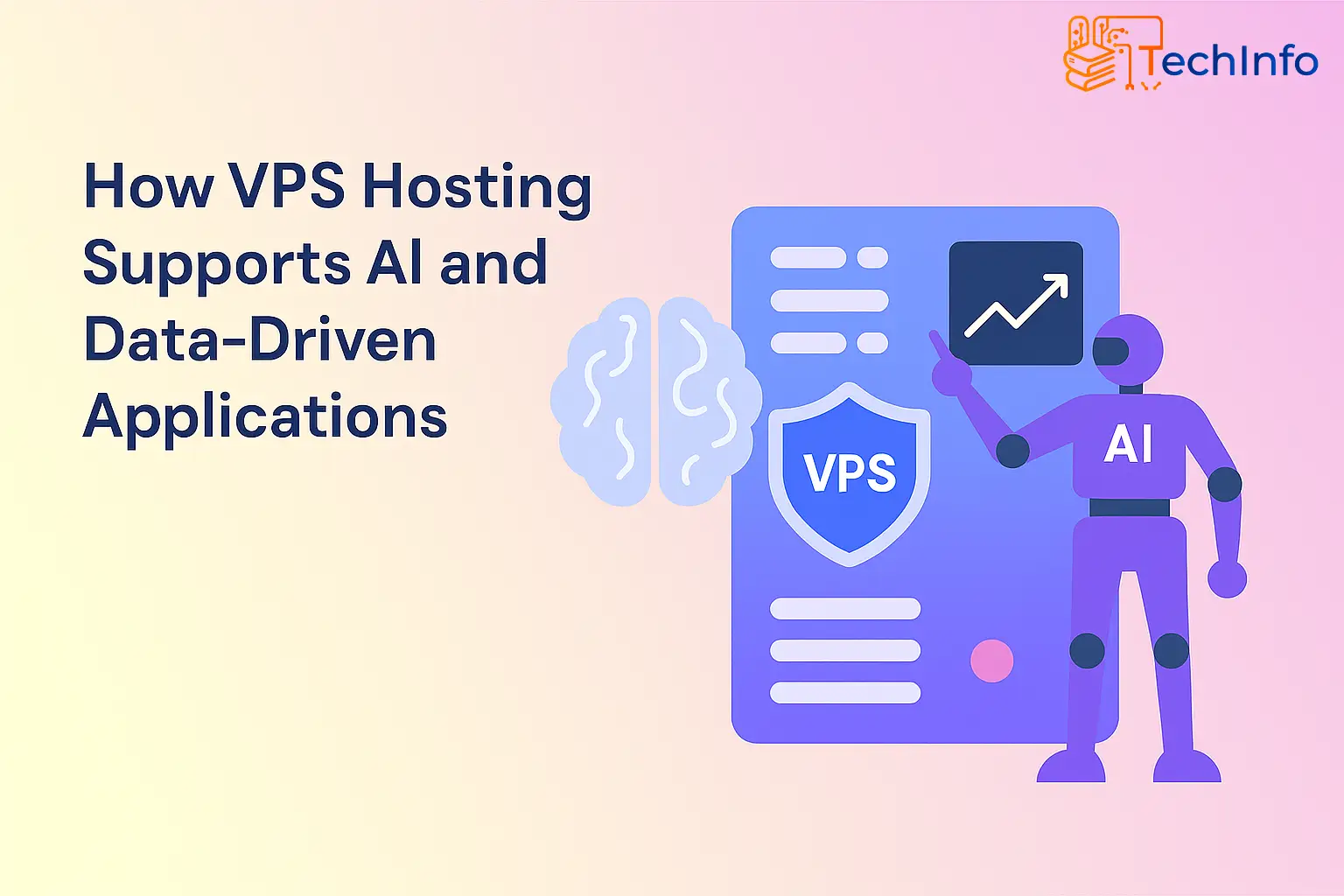How VPS Hosting Supports AI and Data-Driven Applications
Artificial Intelligence (AI) and data analytics are no longer theoretical concepts; they are the engines driving every modern business—from personalized e-commerce recommendations to predictive maintenance in manufacturing. These applications, however, are resource-intensive. Training large language models (LLMs), performing real-time inference, and processing petabytes of data require immense, dedicated, and flexible computing power. VPS hosting provider the ideal balance of performance, control, and cost-efficiency for running modern AI models and complex data applications.
The Compute Demand of the Intelligent Web
While hyperscalers offer enormous resources, the sweet spot for many businesses and developers running sophisticated AI workloads is the Virtual Private Server (VPS). In 2026, VPS hosting has evolved from a simple step up from shared hosting to a highly optimized, cost-effective, and secure platform specifically engineered to handle the unique demands of AI and data-driven applications.
The Core Advantage:- Isolation and Dedicated Resources
The fundamental strength of a VPS is the isolated environment it provides. Using virtualization technology (often KVM or Xen), a single physical server is partitioned into multiple, private virtual machines. Unlike shared hosting, where resources fluctuate based on the “noisy neighbor” effect, a modern VPS guarantees dedicated allocations of:
- vCPUs and RAM: Crucial for training smaller models, performing complex data cleaning, and running real-time AI inference services.
- NVMe SSD Storage: Essential for the rapid reading and writing of large datasets, significantly reducing I/O bottlenecks that commonly plague data applications.
- Dedicated IP Address: Ensuring a stable, secure network identity for API endpoints and data transfer pipelines.
This dedicated nature ensures consistent, predictable performance, which is paramount for iterative AI development and mission-critical production data pipelines.
Handling AI Compute Workloads
AI model training and deployment present unique challenges that VPS technology is now specifically tailored to address.
1. GPU-Accelerated VPS for Deep Learning: The biggest leap in VPS technology has been the integration of Graphics Processing Units (GPUs). Since deep learning relies heavily on parallel processing, a CPU-only server is insufficient. Modern VPS providers offer plans with virtualized access to enterprise-grade GPUs (like NVIDIA A100s or L4s). This GPU-accelerated VPS allows developers to:
- Train Models Cost-Effectively: Run complex model training and fine-tuning exercises without the massive cost of a dedicated physical server.
- Run Inference at the Edge: Deploy trained models for fast, low-latency inferencing (e.g., image recognition, natural language processing) directly on the VPS, often integrating with the distributed concepts of edge hosting performance discussed in Blog 2.
2. Scalability and Elasticity for Data Pipelines
Data workloads are inherently dynamic. A data warehouse might see high-volume ETL (Extract, Transform, Load) operations overnight, followed by intensive analytics queries during the day. VPS providers have overcome their traditional static limitations to offer genuine, instant scalability:
- Vertical Scaling (Scale Up): Instantly upgrading the vCPU or RAM allocations via a control panel to handle temporary spikes in computational load.
- Horizontal Scaling (Scale Out): Easily spinning up multiple identical VPS instances, placing them behind a load balancer to handle vast, distributed data processing tasks. This is the cornerstone of handling massive web traffic or large-scale data ingestion.
The Role of Containerization and Cloud Integration
For AI applications to be truly portable and scalable, they must be packaged efficiently. Containerization has become indispensable for AI workflows, and the robust isolation of a VPS is the perfect host environment.
3. Containerization for Reproducible AI (Docker & Kubernetes)
Data scientists often face the “works on my machine” problem. Containerization (using Docker) packages the entire application—code, runtime, system tools, and libraries—into a single, isolated image.
- Reproducibility: This ensures that an AI model trained on one developer’s machine will run identically on the production VPS, eliminating dependency hell.
- Deployment: The VPS acts as a secure, dedicated environment for running these containers. Providers now offer one-click VPS setups pre-configured with Docker or even managed Kubernetes platforms (which orchestrate containers across multiple VPS nodes).
4. Hybrid Cloud Integration
Many enterprise AI strategies are Hybrid Cloud—using public cloud for massive-scale training (e.g., massive GPU farms) and a private, more controlled VPS environment for sensitive data storage, model deployment, and real-time inference.
The VPS serves as the secure, private “anchor,” connecting via VPNs to the public cloud for specific tasks, allowing for the flexibility of the cloud while maintaining control and compliance over critical data assets.
Looking Ahead – VPS and Quantum Readiness
While traditional VPS platforms excel at current computational demands, the future points toward technologies that will shatter today’s performance barriers. The evolution of AI compute workloads on specialized hardware is a stepping stone to truly disruptive innovations.
The very infrastructure that makes a VPS flexible enough to adopt GPU acceleration today is preparing it for the integration of future hardware advancements. As we look forward, the principles of isolation and dedicated resource allocation inherent to VPS will be crucial for experimenting with post-classical compute models.
For a vision of how the most advanced computing technology will completely redefine application hosting, be sure to read our final article on quantum hosting innovations.
Conclusion:- The Intelligent Workhorse of the Cloud
VPS hosting in 2026 is no longer a mid-tier solution; it is the intelligent workhorse of the data-driven web. By offering dedicated resources, flexible scalability, and seamless integration with container and cloud technologies. For any business building the next generation of intelligent tools, the right VPS architecture is the foundation for success.







